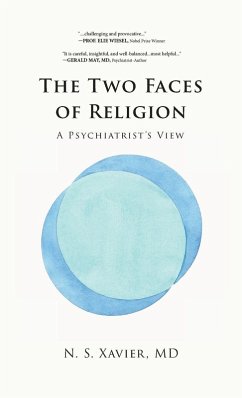The Two Faces of Religion considers the entire spectrum of religious experience under the (twin) aspects of its opposite poles – the radiance of mature spirituality and the gloom of sick religiosity. Although Dr, Xavier necessarily contrasts the positive heights and the negative depths of mankind’s spiritual experience, he equally emphasizes the vast grey areas of overlap. It is in these areas of overlap that Dr. Xavier’s medical and psychiatric expertise accomplishes the most fruitful of outcomes – the recovery of troubled soul from the psycho/religious tensions and afflictions so common in today’s turbulent and pressurized society. His exploration of the dynamic factors underlying the religious spectrum – love, courage, wisdom, hate, fear, egoism, identity, etc. – provides a wealth of information and insight to those who are seeking psychological and spiritual growth. Clinical, historic, and literary examples illustrating the operation of these dynamic factors make the book particularly interesting to professionals and lay people alike.
Bitte wählen Sie Ihr Anliegen aus.
Rechnungen
Retourenschein anfordern
Bestellstatus
Storno








